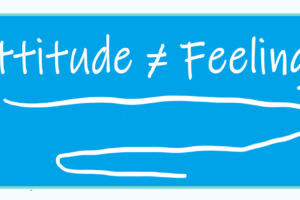Comments from Kathryn, the author of this blog and a licensed clinical social worker: One of the reasons people seek therapy is to improve their self-esteem and build their self-confidence. Many people try to increase their self-esteem and confidence by reciting affirmations or affirming questions, for example, “I am good enough.” The theory is that if you say a positive statement, an affirmation, enough times you will boost your self-esteem. Too bad it doesn’t work that way in real life.
In therapy we focus on identifying all of your strengths so that when you say an affirmation, there is something to back up that affirming statement!
Affirmations
It is not unusual to hear the phrase “positive affirmations”. Is the term “positive affirmations” more accurate than the term “affirmations”? No! All affirmations are positive. There is no such thing as a “negative affirmation”!
Dozens of books have been devoted to the topic of affirmations, for example, affirmations for men, affirmations for women, affirmations for kids, affirmations for healing, and affirmations for people who have been diagnosed with anxiety or depression.
There are two serious problems with these books:
- Affirmations are not one-size-fits all!! For example, not all women are the same, and anxiety is not experienced the same by all people diagnosed with anxiety.
- Reciting an inspiring, upbeat, sunshine and unicorns’ affirmation you don’t believe will never make you feel better about yourself, only more of a fraud or an imposter.
The goal of affirmations is to boost your self-esteem. Through affirmations you will feel better about yourself and your decisions. You may have tried affirmations for a while, but decided they really weren’t for you. That is because unless you change how you think about yourself, you will rely on old worn-out scripts of “I can’t do anything right.”
For reinforcement and to retrain your brain, you will need to look at your created affirmations throughout the day. This might be accomplished by:
- Keeping a piece of paper with your affirmation in your lunch bag. That way, as you are eating your lunch you can think about your created affirmation.
- Setting an alarm on your cellphone to remind you to look at your created affirmation throughout the day.
There are many reminder options. The idea is to create your affirmation and review it frequently throughout the day.
Examples of Affirmations:
- I am in charge of my thoughts.
- I am in control of how I react to others.
- I am enough.
- I am free to create the life I desire.
- I am courageous enough to ask for help.
- I am determined.
- I am in charge of how I feel today.
- I am a warrior, not a worrier.
- I am allowed to make mistakes.
- I am happy with myself.
Affirming Questions
An affirming question is going to challenge your belief system. Affirming questions are designed to make you think about what could be, the possibilities. Examples of an affirming question might include: “What is holding me back from feeling great?” or “Why can’t I see myself as being complete?”
When you are asking yourself an affirming question, you aren’t trying to convince yourself of something you may not believe is true. With an affirming question you are simply asking your mind to look for the positive and to search for the possibilities.
An affirming question is going to challenge you to think about what could be, not what is. By thinking about the potential answers to your affirming questions, your thought process will quickly change to an active problem-solving mode, a characteristic of someone with high self-esteem.
The goal of affirming questions is to do a paradigm shift, to think about things differently. You may not feel great about yourself, but why do you believe that is true? What are the roadblocks that you create to see yourself in the worst light?
When you start thinking about all of the things you do well or how you have accomplished things in the past, you can begin to look at how you can be successful in the future.
You don’t need to get too invested in finding answers to your affirming question. This is one of those times it is better to think about the possibilities than to arrive at an answer.
Examples of Affirming Questions:
- What is stopping me from having the success I desire?
- Why do I avoid taking time for me throughout the day?
- Why shouldn’t I respect myself?
- Why do I doubt my life has meaning?
- What prohibits me from going after what I want?
- Why do I doubt my abilities?
- Who will believe in me if I don’t believe in myself?
- Why do I choose to hang onto emotional tension?
- What inhibits me from making time for things that are important to me?
- Why can’t I see my mistakes and challenges as growth opportunities?
Take Away Point
You have the ability to boost your self-esteem, to feel better about yourself. Many times, you are probably making this out to be more difficult than it really is. Start by thinking about affirmations. Take an affirmation and turn it into an affirming question: “I am enough” to “Why can’t I be enough?”
By thinking about affirming questions, you can turn your mind into a problem-solving machine! By coming up with reasons why are “good enough” you will start to boost your self-esteem.
If the information in this blog has been interesting to you, you might like to check out my book on improving your self-esteem: Stop Being Your Own Worst Critic: How to Use Affirmations and Journaling to Improve Your Self-Esteem. It contains more information on how you can boost your self-esteem and confidence by using affirmations and affirming questions to build on your strengths.
With warmest regards,
Thank you so much for reading this blog. If you enjoyed the content, please check out other blogs at:
https://relationshipsrelearned.com/my-blog/
https://rvingnomads.com/blog/
In addition to blogs and articles, I have written a series of self-help books. To view these books, please go to my Amazon Authors Page or go to the My Self-Help Books tab at the top of this page.
To be notified of future posts, please enter your email address and click on the Subscribe button.
| AI has not been used to create any content for my website, articles, blogs or books. All material is original unless otherwise noted. All photos and graphics within my website and blogs were taken or created by David Harrington or Kathryn Maietta. |










